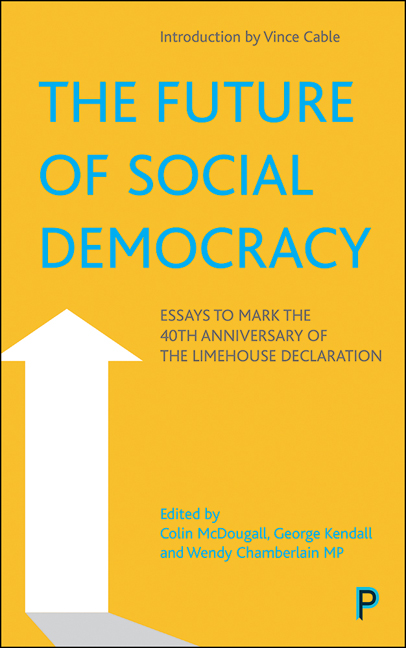Book contents
- Frontmatter
- Dedication
- Contents
- Notes on the authors
- Foreword
- Introduction: what are the priorities for social democrats?
- One After the failed alternative vote referendum, how can electoral reform have a future?
- Two How could a government actually deliver more housing?
- Three How will technology change the future of work?
- Four Can better public ownership promote efficiency and social justice?
- Five How do we grow the economy without damaging the environment?
- Six How can global free trade work for everyone?
- Seven Towards a social democratic foreign policy?
- Eight How do we deliver social justice through education?
- Nine What is the Social Democrat Group?
- Index
Two - How could a government actually deliver more housing?
Published online by Cambridge University Press: 05 January 2022
- Frontmatter
- Dedication
- Contents
- Notes on the authors
- Foreword
- Introduction: what are the priorities for social democrats?
- One After the failed alternative vote referendum, how can electoral reform have a future?
- Two How could a government actually deliver more housing?
- Three How will technology change the future of work?
- Four Can better public ownership promote efficiency and social justice?
- Five How do we grow the economy without damaging the environment?
- Six How can global free trade work for everyone?
- Seven Towards a social democratic foreign policy?
- Eight How do we deliver social justice through education?
- Nine What is the Social Democrat Group?
- Index
Summary
Housing has been such a Cinderella issue for so long that poor policies have been tolerated for decades. Even now, voters are worried about so much else (at the time of writing, coronavirus, jobs and Brexit) that not even 1 per cent of respondents to Ipsos-Mori's long-running poll say that housing is the issue of most concern facing Britain. Moreover, any attempts to deal with the housing problem – both the lack of housing for increasing numbers of households (due to later marriage, divorce and longer lives) and the increasing unaffordability of housing as prices have soared – tend to require long-term solutions that politicians focused on the next election too easily ignore.
Yet, housing probably does more to determine most people's welfare than anything else apart from their income and their health. Homelessness should not scar any rich society. Any prosperous country should surely be able to ensure more living space for its citizens, not less, as in the UK (where new privately built housing for sale now rarely matches the Parker-Morris standards for council housing after the war). Any sensible government should want its people to own and care for their own homes as they want, but not to believe that housing is a get-rich-quick alternative to hard work and building businesses.
One brave option would be to set a clear long-term target either for house-building (as was the case in the 1950s, when Churchill appointed Macmillan as Housing Minister with the warning that it would make or break him) or for house prices. By most estimates, we need between 250,000 and 300,000 new homes a year to meet rising demand and some of the backlog. A clear target would have the effect of focusing attention on government delivery, as well as on the detailed measures needed to improve our record. My own preference would be a target not for the number of homes, but for house prices. (As economists point out, you can set a target for quantity or price but not both.)
- Type
- Chapter
- Information
- The Future of Social DemocracyEssays to Mark the 40th Anniversary of the Limehouse Declaration, pp. 23 - 34Publisher: Bristol University PressPrint publication year: 2021

